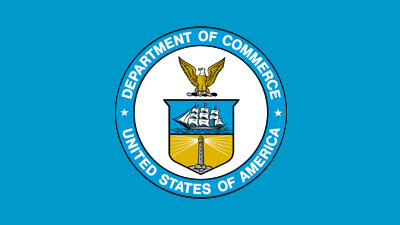
Fact Sheet: International Trade Administration Efforts to Advance U.S. Competitiveness and Trade in the Digital Economy
Sep 20, 2024
In today’s dynamic and rapidly evolving economic landscape, the digital economy has become a cornerstone of economic growth, job creation and innovation in the United States. It is creating international growth opportunities for businesses of all sizes across virtually every industry—from farming to high-end manufacturing. According to the Department of Commerce’s Bureau of Economic Analysis (BEA), in 2023, U.S. exports of digitally-enabled services accounted for 64% of all U.S. services exports, driving the $278 billion trade surplus in services. The digital economy is a major source of employment, with 8.9 million persons holding jobs tied to the digital economy across nearly every sector and industry.
As the digital economy grows, U.S. businesses, especially micro, small and medium-sized enterprises (MSMEs), are navigating increasingly complex policy environments overseas and evolving market conditions that threaten to undermine U.S. technological leadership. To address this, the International Trade Administration (ITA), in partnership with other Commerce agencies and leveraging expertise across the Department, is undertaking several new initiatives and expanding existing efforts that are designed to strengthen U.S. competitiveness and trade in the digital economy.
New Global Digital Economy Reporting: To better inform and serve MSMEs, ITA’s Country Commercial Guides will now include a separate chapter on the digital economy. This chapter provides practical and actionable information to help U.S. businesses stay informed of the latest trends, opportunities, and challenges impacting the digital economy. U.S. businesses can access this new information on Trade.gov. Going forward, the Digital Economy chapter will be updated annually.
Training Digital Attachés and Growing Linkages with Leading U.S. Tech Companies: Based in U.S. embassies around the world, ITA’s digital attachés specialize in promoting commercial exchange, tackling market access barriers and developing partnerships. Working with the Business Council for International Understanding (BCIU) and others in industry, ITA plans to strengthen the professional development of its digital attachés by training our staff and enhancing linkages with leading U.S. Fortune 500 and small and medium-sized tech companies through substantive engagement before those Attachés arrive in their overseas posts. This experience will empower commercial diplomats to be stronger advocates for U.S. commercial interests in foreign markets and help strengthen U.S. leadership in the digital economy.
Supporting MSME Tech Exporters: In collaboration with the Economic Development Administration (EDA), ITA’s U.S. Commercial Service offices recently developed a support mechanism to aid the 31 Tech Hubs, designated by EDA last year, to build their capacity to provide tailored advice and support that helps to maximize the growth potential of MSMEs working with each Hub.
Digital Economy Trade Missions: With the growth of barriers to trade in the digital economy, beginning this year, ITA is pursuing more executive-led commercial diplomacy trade missions focused exclusively on U.S. exports of digitally-enabled services. These missions would feature government-to-government policy engagement with the support of participants from the U.S. business community. They would also target different regions. ITA will continue to organize several business development trade missions in sectors like Cybersecurity and Financial Technology.
These actions build on ITA’s longstanding efforts—through its industry and policy experts, its network of international and domestic offices, and its partnership with experts across the Department—to deliver concrete, commercially meaningful outcomes that advance U.S. innovation and leadership in the digital economy. These efforts include working with trading partners through signature achievements like the U.S.-EU Trade and Technology Council, Presidential initiatives like the Digital Transformation with Africa, and specialized bilateral dialogues like the U.S.-Singapore Partnership for Growth and Innovation and the U.S.-Brazil Commercial Dialogue, to pursue alignment on digital economy issues. They also include efforts to promote data flows that are critical for U.S. companies, particularly MSMEs, to access foreign markets; advance secure and trusted networks; and strengthen innovation through the full deployment of Wi-Fi technologies and the safe, secure, and trustworthy development of emerging technologies like artificial intelligence.
Read the full report from the U.S. Department of Commerce: Read More



